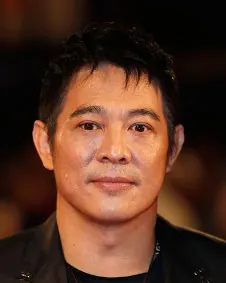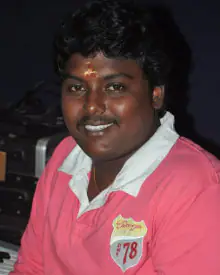X
Mike Leigh
Director
Mike Leigh Biography
Mike Leigh, OBE is an English film and theatre director, screenwriter, and playwright. He studied theatre at the Royal Academy of Dramatic Art and did his early acting with the Royal Shakespeare Company. He began as a theatre director and playwright in the 1960s, and then in the 1970s, he made the transition to television plays, many of which were characterized by a gritty "kitchen sink realism" style. Some of his well-known films include Life is Sweet (1990), the Gilbert and Sullivan biography Topsy Turvy (1999), and the bleak working-class drama All or Nothing (2002). His most notable works are arguably Naked (1993) for which he won the Best Director award at Cannes, the BAFTA-winning (and Oscar-nominated) Secrets & Lies (1996) and Vera Drake (2004).
Leigh is often compared to filmmaker Ken Loach, who also makes social realism-orientated films that focus on the banal conflicts of the everyday life of regular people. Most of Leigh\\\'s films are set amidst the blighted "urban decay of the inner city, or amid the soulessness of suburbia". Leigh begins projects without a script; instead, he sets out a basic premise, and lets the ideas develop through improvisation by the actors, who explore their character. Some critics have argued that with this creative approach, "Leigh exploits his actors by getting them to do the work for them
Early life
Leigh was born in Broughton, Salford, Lancashire, the son of Phyllis Pauline (née Cousin) and Alfred Abraham Leigh, a doctor in an overwhelmingly working-class area of Salford (near Manchester). Leigh was brought up in a Jewish immigrant family (whose surname was originally "Lieberman", but was anglicised before Leigh\\\'s birth). Initially trained as an actor at RADA, Leigh went on to start honing his directing skills at East 15 Acting School where he met the actress Alison Steadman.
He won a scholarship to the Royal Academy of Dramatic Art in 1960. He later attended Camberwell School of Arts and Crafts, the Central School of Art and Design, and the London Film School. He played small roles in several British films in the early 1960s (West 11,Two Left Feet),and a part in the BBC TV series Maigret. In 1965 he began to write and direct his first plays.
Career
In the 1970s, Leigh made nine television plays. Earlier plays such as Nuts in May and Abigail\\\'s Party tended more towards bleakly yet humorously satirising middle-class manners and attitudes. His plays are generally more caustic, stridently trying to show the banality of society. Goose-Pimples and Abigail\\\'s Party both focus on the vulgar middle class in a convivial party setting that spirals out of control. The television version of Abigail\\\'s Party was made at some speed, Steadman was pregnant at the time, and Leigh\\\'s objections to flaws in the production, particularly the lighting, led to his preference for theatrical films.
In 1988, he made High Hopes about a disjointed working-class family whose members live in a "run-down flat" and a "council house." His later films such as Naked and Vera Drake are somewhat starker, more brutal, and concentrate more on the working-class; Leigh\\\'s latest film, however, is a modern-day comedy, Happy-Go-Lucky. A commitment to social realism and humanism is evident throughout. More specifically, several of his films and television plays examine the domestic relationships of ordinary people, which are brought to a head or transformed by some crisis towards the end of the film.
His stage plays include Smelling A Rat, It\\\'s A Great Big Shame, Greek Tragedy, Goose-Pimples, Ecstasy, and Abigail\\\'s Party.
The anger inherent in Leigh\\\'s material, in some ways typical of the Thatcher years, softened after her departure from the political scene. In 2005, Leigh returned to directing for the stage after many years absence with his new play, Two Thousand Years at the Royal National Theatre in London. The play deals with the divisions within a left-wing secular Jewish family when one of the younger members finds religion. It is the first time Leigh has drawn on his Jewish background for inspiration.
Leigh has won several prizes at major European film festivals. Most notably he won the Best Director award at Cannes for Naked in 1993 and the Palme d\\\'Or in 1996 for Secrets & Lies. He won the Leone d\\\'Oro for the best film at the International Venice Film Festival in 2004 with Vera Drake. He has been nominated for the Academy Award five times, twice each for Secrets & Lies and Vera Drake (Best Original Screenplay and Best Directing) and once for Topsy-Turvy (Best Original Screenplay only).
Leigh has used a pool of actors regularly over the years, including Alison Steadman, Timothy Spall, Lesley Manville, Ruth Sheen, Marion Bailey, Phil Davis, Jim Broadbent, Peter Wight, Sally Hawkins, Eddie Marsan, Claire Skinner, and the late Katrin Cartlidge.
Personal life
In September 1973 he married Alison Steadman; they have two sons. Steadman appeared in seven of his films and several of his plays, including Wholesome Glory and Abigail\\\'s Party. They divorced in 2001. He lives in Central London, near the British Museum.
Style
Leigh uses lengthy improvisations developed over a period of weeks to build characters and storylines for his films. He starts with some sketch ideas of how he thinks things might develop, but does not reveal all his intentions with the cast who discover their fate and act out their responses as their destinies are gradually revealed. http://celebrity.psyphil.com/kannada-actress-hot-profile-kannada-heroines-profile/Initial preparation is in private with the director and then the actors are introduced to each other in the order that their characters would have met in their lives. Intimate moments are explored that will not even be referred to in the final film to build insight and understanding of history, character and inner motivation.
The critical scenes in the eventual story are performed and recorded in full-costumed, real-time improvisations where the actors encounter for the first time new characters, events or information which may dramatically affect their characters\\\' lives. Final filming is more traditional as definite sense of story, action and dialogue is then in place. The director reminds the cast of material from the improvisations that he hopes to capture on film.
In an interview with Laura Miller, "Listening to the World: An Interview With Mike Leigh," published on salon.com, Leigh states, "I make very stylistic films indeed, but style doesn\\\'t become a substitute for truth and reality. It\\\'s an integral, organic part of the whole thing." Leigh\\\'s vision is to depict ordinary life, "real life," unfolding under extenuating circumstances. He makes courageous decisions to document reality. He speaks about the criticism Naked received: "The criticism comes from the kind of quarters where "political correctness" in its worst manifestation is rife. It\\\'s this kind of naive notion of how we should be in an unrealistic and altogether unhealthily over-wholesome way".
Celeb Birthdays
-
Melonie Diaz Apr 25
-
Priya Atlee Apr 26
-
Jet Li Apr 26
-
Jordana Brewster Apr 26
-
Nidhi Mahawan Apr 26
-
Tanya Ravichandran Apr 26
-
Pandi Apr 26
Enable




 Click it and Unblock the Notifications
Click it and Unblock the Notifications

















